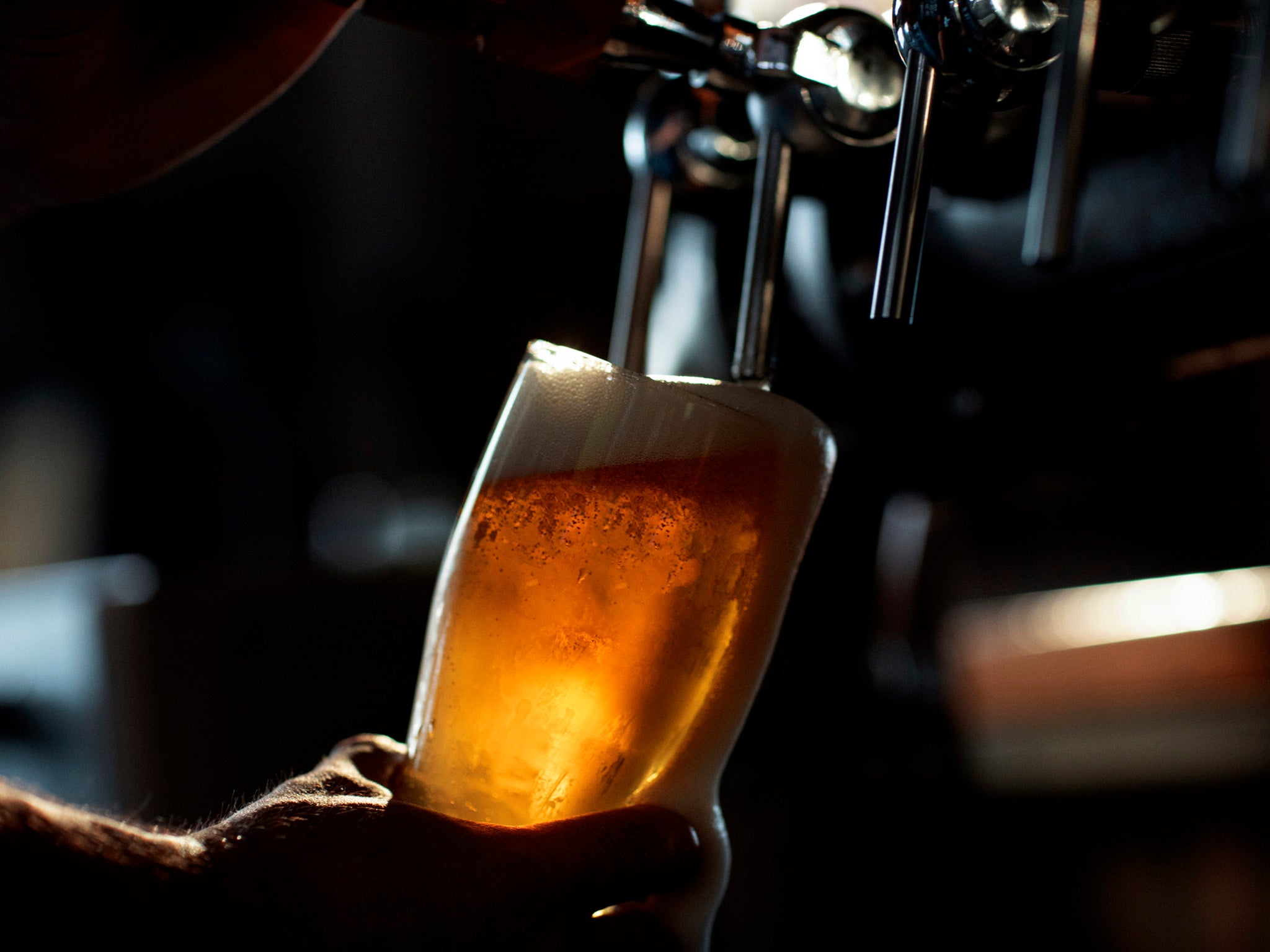Beer ‘can help gut microbes and reduce risk of some diseases’
Scientists said drinking one bottle or can of beer per day – preferably non-alcoholic – could boost health, reports Lamiat Sabin

Drinking one alcoholic or non-alcoholic beer per day could lead to better gut health than not consuming the drink regularly, according to the results of a pilot study.
When drunk in moderation, beer – like wine – can have some specific health benefits due to the polyphenol micronutrients in the drinks, researchers in Portugal have found.
The male-only study found those who drank one beer a day at dinnertime had a more diverse range of microbes in their digestive systems, compared to the state of their guts prior to the study.
The human digestive system is lined with trillions of microorganisms – around 90 per cent of which are bacteria – that directly impact a person’s health. Good gut bacteria help break down food, process vitamins, and train the immune system.
Studies have shown that when more types of bacteria are present, people tend to have a lower chance of developing chronic diseases – such as heart disease, diabetes and cancer.
Polyphenol compounds and gut-friendly bacteria found in beer from its fermentation could boost the variety of beneficial microbes in the digestive system.
A previous study showed that, when both men and women consumed non-alcoholic lager beer for 30 days, the diversity of their gut microbiome increased.
But many of those people were also part of a second group that did not show the same effect in their guts after having regularly drank an alcoholic version of the beer.
This led researchers – led by Ana Faria, from Universidade Nova de Lisboa – to see if they could find the benefits of drinking alcoholic beer. They conducted a double-blind and randomised study involving two separate groups of men.
Nineteen healthy men were randomly divided into two groups. For four weeks with their dinner every day, they drank about 330ml – the same amount of fluid found in a standard-sized can of soft drink – of either alcoholic or non-alcoholic lager.
The researchers found that the participants’ weight, body mass index and serum markers in their blood – for heart health and metabolism – did not change during the study.
But at the end of the four-week period, both groups had greater bacterial diversity in their gut microbiome and higher levels of phosphatase – a faecal alkaline – which researchers said indicates an improvement in intestinal health.
Based on the pilot study, the researchers came to the conclusion that consuming one bottle of beer, regardless of its alcohol content, may be beneficial to men’s gut microbiome and intestinal health.
However, they added that – because it is safer to not drink alcohol – non-alcoholic beer would be a healthier choice.
The researchers wrote: “These results suggest the effects of beer on gut microbiota modulation are independent of alcohol and may be mediated by beer polyphenols.”
The study has been published in the American Chemical Society’s Journal of Agricultural and Food Chemistry.






Join our commenting forum
Join thought-provoking conversations, follow other Independent readers and see their replies
Comments